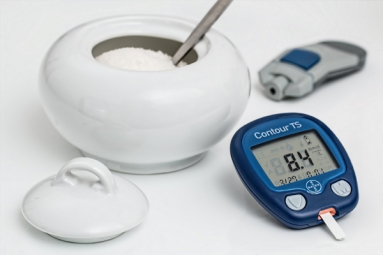You can get diagnosed with type 2 diabetes even if you don’t eat sugar
February 18, 2025 14:56
(Image source from: Canva.com)
Diabetes ranks among the most prevalent chronic health issues linked to lifestyle choices. However, there is a prevalent misconception that only those who indulge in sugary foods develop this condition. To clarify this misunderstanding, nutritionist Charmaine Ha Dominguez points out that type 2 diabetes is not solely the result of excessive sugar intake. "I frequently encounter individuals who are diagnosed with type 2 diabetes expressing their confusion about how they acquired this condition. While elevated blood sugar levels are a hallmark of type 2 diabetes, overconsumption of sugar isn't necessarily the primary cause," Dominguez explained. She noted that the primary factor behind type 2 diabetes is insulin resistance. "This resistance occurs when there is a buildup of fatty acids within the liver and muscle cells, which effectively disables the insulin receptors, preventing insulin from efficiently transporting glucose from the blood into the cells," she added, emphasizing that this results in elevated blood sugar levels.
Dominguez further elaborated that three critical elements contribute to insulin resistance: a lack of physical activity, a diet high in unhealthy fats, and the overconsumption of calories. In the context of type 2 diabetes, factors such as obesity, a sedentary lifestyle, and genetic predisposition play significant roles in the development of insulin resistance. A person might steer clear of sugary items but still be at risk for diabetes if they consume a lot of high-fat foods and are overweight, as these can lead to inadequate insulin secretion and increased insulin resistance. Individuals with excessive body fat, particularly visceral fat—which is more prevalent among Asian Indians—are at a greater risk. In these situations, insulin can be trapped in fat cells, further aggravating insulin resistance. She suggested that losing weight might assist in releasing this stored insulin back into circulation, potentially improving diabetes management. Similarly, factors like stress and insufficient sleep can disrupt hormonal balance as well as metabolic processes, leading to abnormal blood sugar levels.
It’s crucial to recognize that a sedentary lifestyle, advancing age, and specific medications—especially steroids and certain antidepressants—can increase the risk of developing diabetes, even when high sugar consumption is not a factor.













